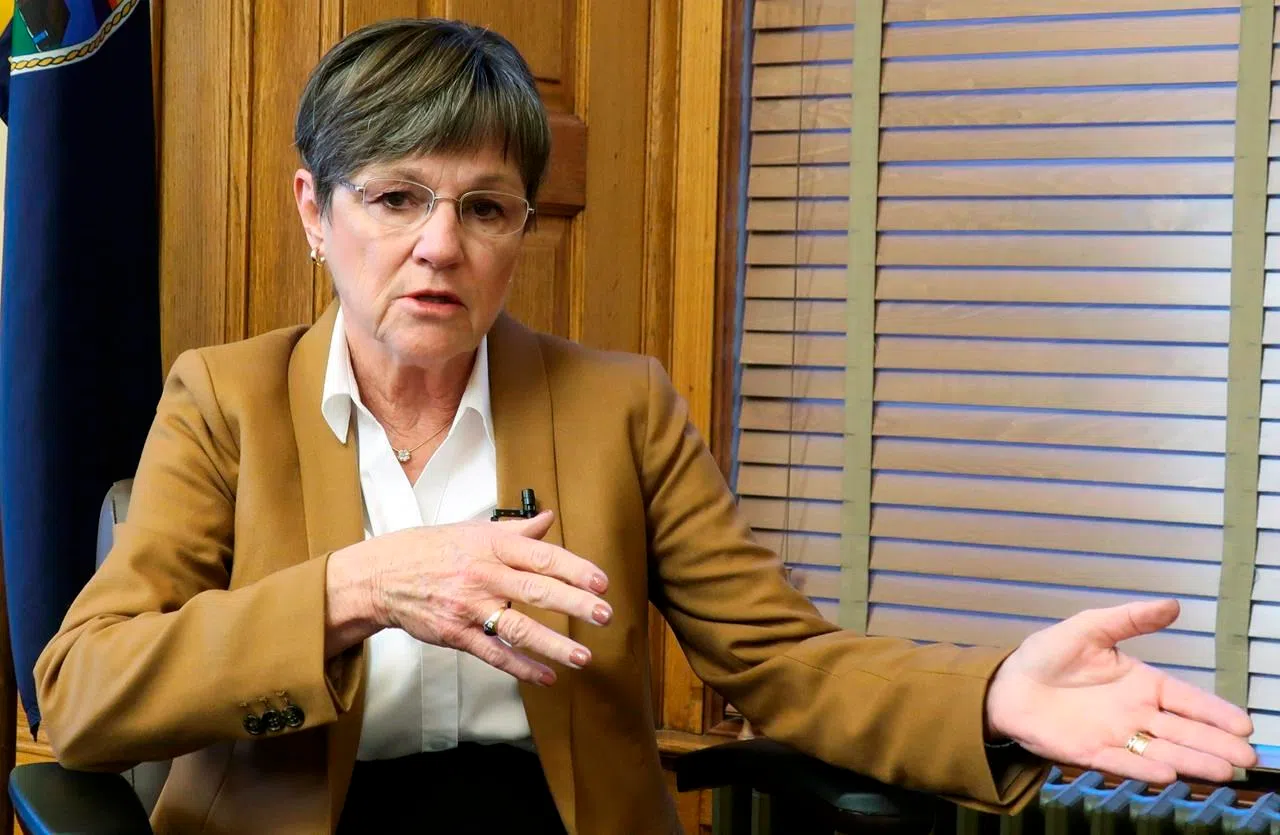
New Democratic Kansas governor promises bipartisan approach
TOPEKA, Kan. — Kansas’ new Democratic governor called Monday for the state to “forge a new chapter” of bipartisanship, arguing as she took office that the Statehouse had lost the “spirit of neighbor-helping-neighbour” under her Republican predecessors.
Laura Kelly was sworn in as the state’s 48th governor on the Capitol steps, in front of huge banners declaring “Equality,” ”Education” and “Opportunity.” Her supporters celebrated a sharp break with her conservative GOP predecessors, even as she attempted to summon an ethos of co-operation across political, ethnic and religious lines.
“Somewhere along the way, that spirit of neighbor-helping-neighbour that runs so strong in our communities failed to extend into this building,” Kelly said in her speech to a crowd of a few thousand people. “Public service gave way to partisanship. And the voices of Kansas families were not heard. Kansas lost its sense of self, its sense of community.”
The 68-year-old governor was formerly a veteran state senator who pitched herself to voters as a no-nonsense problem-solver who could work with Republicans, who control the Legislature.


